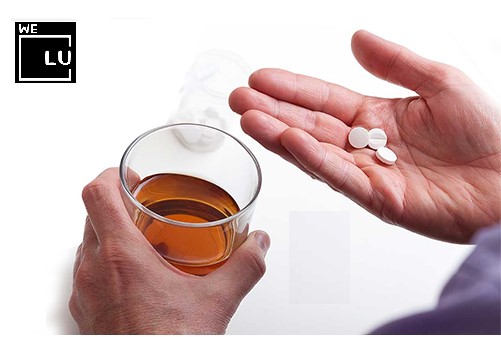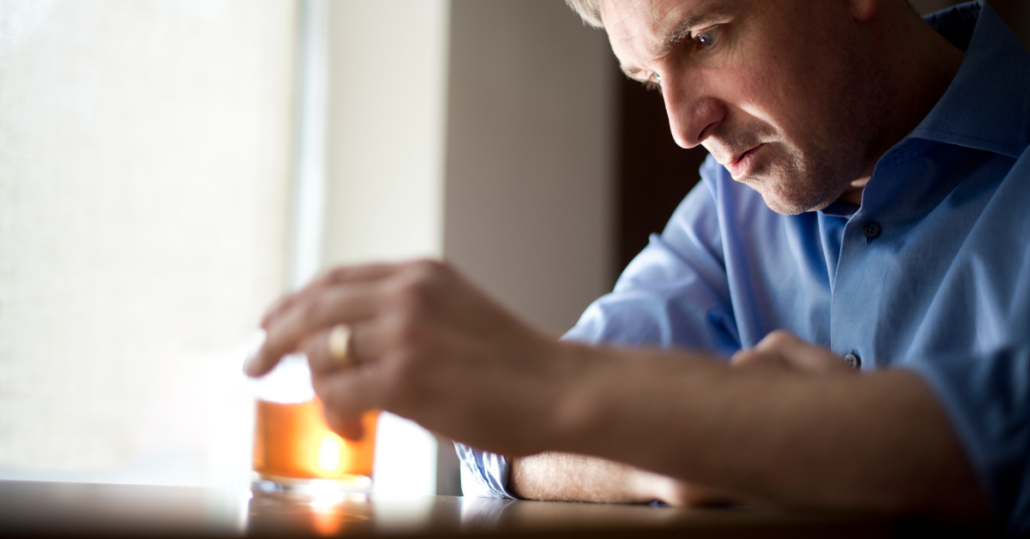All about Claritin and Alcohol
Mixing alcohol and Claritin is not safe or advisable because when these substances are mixed, the side effects of each substance are worsened. Alcohol can make multiple further types of side effects when mixed with other remedies. Some of these side effects can be harmful or even potentially deadly. Claritin, also called by its generic name loratadine, is an allergy medicine that people occasionally take at the same time as alcohol.
What is Claritin (Loratadine)?
Loratadine, sold under the brand name Claritin among others, is a medication used to treat allergies. Claritin among others is a medication used to treat allergies. Claritin and alcohol side effects such as dizziness and sleepiness are still possible. Plus, Claritin may interfere with your liver’s ability to process alcohol, increasing your risk of an overdose if you drink too much. Because of these risks, it’s best to avoid alcohol when taking Claritin.
How to use Claritin Tablet?
Read the entire set of instructions on the product package before using the over-the-counter product for self-treatment. Follow your doctor’s instructions and those listed on the prescription label if your doctor has recommended this medicine for you. You should speak with your doctor or pharmacist if you have any questions.
Take this medication by mouth, generally once daily, with or without food and as recommended by your doctor or the product box. If using chewable pills, thoroughly chew each one before swallowing.
If you are taking the medication in liquid form, use a particular measuring device or spoon to accurately measure the dosage. Don’t use an ordinary spoon since you could not get the correct dosage.
The dose is determined by your age, health, and treatment response. Do not use this medication in larger amounts or more frequently than recommended. Do not use this medication in excess of what is advised for your age.
What is Claritin use for?
This medication is an antihistamine that treats symptoms such as itching, runny nose, watery eyes, and sneezing from “hay fever” and other allergies. It is also used to relieve itching from hives.
Claritin is also available in combination with pseudoephedrine, a decongestant, known as loratadine/pseudoephedrine. It is taken orally.
If your hives persist for longer than 6 weeks or if your allergy symptoms do not subside after 3 days of therapy, let your doctor know. If your condition worsens or you suspect a significant medical issue (such as a very bad allergic response or anaphylaxis), get immediate medical attention.
How long should you take Claritin?
Claritin should be taken as directed; if you miss a dose or take too much, it can lead to severe reactions such as asthma attacks or sudden death. For the best results, follow the directions on your prescription label carefully, and ask your doctor or pharmacist to explain any part you do not understand.
Claritin can be taken for up to 24 hours. It is recommended that you continue to take it until your symptoms improve.
The recommended dosage for Claritin is 75 to 150 milligrams per day, taken by mouth. The maximum recommended length of use is 3 months (although some doctors will allow up to 6 months).
Skip To:
Learn More:
- Mixing Prescription Drugs with Alcohol
- Is Alcoholism a Disease?
- Drug Overdose Symptoms
- Substance Abuse Defined, Signs, Symptoms, Link to Mental Health

What are the side effects of Claritin?
Claritin is a non-sedating antihistamine that works by blocking the actions of histamine, a chemical your body naturally produces that can cause swelling of the lining of your eyes, nose, and throat.
When you take Claritin, it will temporarily relieve symptoms like itching, watery eyes, and sneezing. However, some individuals may experience side effects like drowsiness, dry mouth, or constipation.
Get Help. Get Better. Get Your Life Back.
Searching for Accredited Drug & Alcohol Rehab Centers Near You? Or Mental Health Support?
Even if you have failed previously, relapsed, or are in a difficult crisis, we stand ready to support you. Our trusted behavioral health specialists will not give up on you. Call us when you feel ready or want someone to speak to about therapy alternatives to change your life. Even if we cannot assist you, we will lead you wherever you can get support. There is no obligation. Call our hotline today.
FREE Addiction Hotline – Call 24/7What happens when you mix Claritin and Alcohol?
Mixing Loratadine and alcohol is not recommended. If you do decide to drink while taking Claritin, it is recommended that you do so in moderation and not on an empty stomach.
If you are planning on mixing Loratadine and alcohol, it is important to note that the interactions between these two drugs can be serious. This is because they both affect the central nervous system and can lead to serious side effects like drowsiness, dizziness, disorientation, and more.
It is strongly advised that individuals who drink alcohol while taking Claritin seek medical attention from a physician or other healthcare professional as soon as possible if they experience any side effects such as drowsiness; dizziness; slurred speech; blurred vision; confusion; memory loss or difficulty thinking clearly; nausea or vomiting; fast heartbeat; loss of strength or feeling weak on one side of their body.

Can you drink Alcohol with Claritin?
Alcohol and Claritin? Yes, you can.
Alcohol can interact with Claritin, but not in a bad way. The drug actually helps to reduce the effects of alcohol on the body by blocking histamine, which makes it easier for your body to metabolize alcohol.
The American Academy of Family Physicians notes that while “there are rare cases of liver injury when combining [Claritin] with alcohol,” you should still be able to consume alcohol if you take Claritin twice daily and drink in moderation.
Yes, you can drink alcohol with Claritin. However, if you want to be safe, it’s important to watch your intake and talk to your doctor before trying new things. Drinking alcohol with Claritin can cause a number of problems, including drowsiness, nausea, and vomiting.
Can you mix Claritin and Alcohol?
Many people have been wondering if you can mix Claritin and alcohol. The answer is yes, you can mix Claritin and alcohol, but you should exercise caution.
The amount of alcohol in your blood is reduced when you take Claritin, but it will still be there. So while mixing the two could decrease the effectiveness of the medication, it won’t stop it completely or make you feel worse.
When mixing Claritin alcohol, the first thing to keep in mind is that you should never mix Claritin with alcohol for more than two hours. This is due to the fact that Claritin can interact with alcohol in a negative way.
The second thing to keep in mind is that if you’re taking both medications together, it’s important not to stop taking them suddenly or change the dose without consulting your doctor first.
The third thing to keep in mind is that it’s best not to drive while taking either medication because they can cause drowsiness and even coma if consumed at high doses or mixed with other medications such as cold medicine or pain killers like acetaminophen (Tylenol).

Get Your Life Back
Find Hope & Recovery. Get Safe Comfortable Detox, Addiction Rehab & Mental Health Dual Diagnosis High-Quality Care at the We Level Up Treatment Centers Network.
Hotline (877) 378-4154Side Effects of Mixing Alcohol and Claritin
Mixing Claritin and alcohol is a bad idea.
The effects of mixing alcohol and Claritin can be unpredictable, and they may include: nausea, dizziness, nervousness, anxiety, sleepiness, headaches, muscle pain, fatigue, and dry mouth, or throat.
If you are going to drink while taking Claritin or other allergy medication such as Benadryl (diphenhydramine), be sure to drink nothing else besides water for at least two hours after taking the medication.
While the drug can be taken with alcohol, it can increase your chances of developing an alcohol overdose. This is because alcohol inhibits the body’s ability to absorb Claritin. The result is that instead of being able to block the effects of histamine, you’re more likely to experience more severe symptoms when you take Claritin and drink alcohol together.
While the side effects of mixing Claritin with alcohol may not be as serious as mixing alcohol with many other medications, there are still some negative side effects that can occur.
Some of the side effects of mixing alcohol and Claritin may include:
- Increased drowsiness
- Dizziness
- Increased risk of injury
- Increased risk of overdose
Drowsiness and Dizziness
Claritin and alcohol both cause a sedative effect, leading to sleepiness, fatigue, and dizziness. While the sleepiness that Claritin causes is not particularly noticeable for most people by itself, it becomes more of a factor when Claritin and alcohol are mixed. Both substances contribute to the effects of the other, making dizziness and sleepiness worse.
Increased Risk of Injury
Alcohol impairs judgment, frequently making people overestimate their abilities while their abilities are, in reality, impaired by alcohol use. When alcohol and Claritin are mixed, people’s abilities become even more impaired due to increased sleepiness and dizziness. This effect can increase the danger of ordinary activities such as driving, riding a bicycle, or swimming.
Increased Risk of Overdose
The National Institute of Health (NIH) reports that using Claritin and alcohol together may increase the risk of an overdose on alcohol because the liver works harder to process both alcohol and Claritin together than it would to process just alcohol.
The combination of substances is thought to cause the liver to process alcohol slowly, allowing it to build up in the bloodstream and increase the risk of overdose. As the liver struggles to process these substances, a person’s risk of intoxication could also rise, which also increases the risks of driving or other activities requiring concentration.
Comfortable Facilities & Amenities
High-Quality Addiction & Mental Health Rehabilitation Treatment
Rehab Centers TourRenowned Addiction Centers. Serene Private Facilities. Inpatient rehab programs vary.
Addiction Helpline (877) 378-4154Proven recovery success experience, backed by a Team w/ History of:
15+
Years of Unified Experience
100s
5-Star Reviews Across Our Centers
10K
Recovery Success Stories Across Our Network
- Low Patient to Therapist Ratio
- Onsite Medical Detox Center
- Comprehensive Dual-Diagnosis Treatment
- Complimentary Family & Alumni Programs
- Coaching, Recovery & Personal Development Events

Claritin and Alcohol Interaction
Drug interactions might alter how your drugs function or raise the possibility of major negative side effects. All probable medication interactions are not included in this text. Keep a list of everything you use, including herbal items, prescription and over-the-counter medications, and provide it to your doctor and pharmacist. Without your doctor’s consent, never start, stop, or change the dosage of any medications.
Desloratadine and loratadine are quite similar. While taking loratadine, avoid utilizing drugs that contain desloratadine.
This medicine may affect the findings of several laboratory tests, including allergy skin testing, leading to potentially inaccurate results. Make sure all of your physicians and the lab staff are aware that you use this medication.
World-class, Accredited, 5-Star Reviewed, Effective Addiction & Mental Health Programs. Complete Behavioral Health Inpatient Rehab, Detox plus Co-occuring Disorders Therapy.
CALL (877) 378-4154End the Addiction Pain. End the Emotional Rollercoaster. Get Your Life Back. Start Drug, Alcohol & Dual Diagnosis Mental Health Treatment Now. Get Free No-obligation Guidance by Substance Abuse Specialists Who Understand Addiction & Mental Health Recovery & Know How to Help.
Claritin and Alcohol Overdose
What happens if you take Claritin more than once?
Taking more than the suggested dose of Loratadine may cause drowsiness. In the case of an overdose, get medical help or contact a Poison Control Center right away- always follow label directions.
Is it OK to take 2 Claritin in 24 hours?
Do not take more than one dose in 24 hours. Do not take two doses to make up for a missed one. If you are not sure what to do after missing a dose, contact your doctor or pharmacist for advice.
Typical dosing for Claritin (loratadine)
The typical dose for adults and children 6 years and older is 1 tablet (10 mg) by mouth once a day. Do not take more than 1 tablet in 24 hours. Claritin (loratadine) is also available as a liquid that can be given to children 2 to 6 years old.
Experience Transformative Recovery at the We Level Up Treatment Center.
See our authentic success stories. Get inspired. Get the help you deserve.



Start a New Life
Begin with a free call to an addiction & behavioral health treatment advisor. Learn more about our dual-diagnosis programs. The We Level Up treatment center network delivers various recovery programs at each treatment facility. Call to learn more.
- Personalized Care
- Caring Accountable Staff
- Comfortable Amenities
- Licensed & Accredited
- Renowned w/ 5-Star Reviews
We’ll Call You
Claritin and Alcohol Consumption
It’s important to note that while most people can drink alcohol while taking Claritin, it’s not recommended that you consume alcohol while taking Claritin. Alcohol should be avoided when taking any medication, so it’s particularly important to avoid consuming alcohol while using Claritin.
While using Claritin will not make you sick, it does have side effects that may be more pronounced when you take the medication with alcohol in your system. For example, if you are currently experiencing a headache after drinking, chances are that the headache will continue even after you stop drinking.
If you experience any of these side effects from drinking while on Claritin:
- Headaches
- Dizziness
- Nausea
Loratadine Interactions with Alcohol
There are certain interactions that can occur when you mix alcohol with Claratadine.
Alcohol can increase the effects of Claratadine.
Alcohol may increase your risk for side effects such as drowsiness, dizziness, and confusion. If you are pregnant or breastfeeding, consult your doctor before using Claratadine.
Halitosis is a side effect of using loratadine (Claritin). This medication is used to treat allergy symptoms and signs such as inflammation of the nose or throat. It works by reducing swelling so you can breathe better and cough less.
In fact, halitosis is one of the most common side effects of this drug. If you experience it while taking loratadine your symptoms may include:
- Difficulty breathing
- Coughing
- Sneezing or nasal discharge
FACTS ABOUT CLARITIN AND ALCOHOL
Mixing Claritin and alcohol may be somewhat safe compared to using alcohol with other prescriptions, but there are still some side results that should be considered.
These side effects include:
- Increased dizziness or sleepiness
- Increased risk of injury
- Risk of overdose
- Risk of increased intoxication from each drink
If you are using Claritin and drink alcohol, or are intending on consuming alcohol, discuss the risks with your physician and choose together if this mixture is safe for you.
Search Drug & Alcohol Rehab / Detox & Mental Health Topics & Resources
Alcoholism Treatment
Individual and Group Counseling
Alcohol addiction and mental health counseling occur in both individual and group settings. One-on-one treatment sessions may address unresolved trauma, unconscious conflicts, and specific struggles, while group sessions often involve training in life skills, stress management, conflict resolution, and social connections. Group counseling also gives clients a chance to share their thoughts and experiences to develop social support, which is essential for lasting recovery
You are always in search of ways how to sober up fast. You may not realize that drinking alcohol causes brain damage. If you have apprehensions about quitting drinking because you’re nervous about the effects of alcohol withdrawal, talk to one of our addiction specialists. Please, do not try to detox on your own because the detox process can be painful and difficult without medical assistance. If you or someone you know regularly exceeds these recommended daily limits or is experiencing the effects of alcohol withdrawal, it is important to intervene early. We Level Up NJ has addiction specialists that are standing by to help.

Sources
[1] Pons-Guiraud A, Nekam K, Lahovsky J, Costa A, Piacentini A (2006). “Emedastine fumarate versus loratadine in chronic idiopathic urticaria: a randomized, double-blind, controlled European multicentre clinical trial”. European Journal of Dermatology. 16 (6): 649–54. PMID 17229605.[2] “Claritin- loratadine tablet”. DailyMed. 10 February 2020. Retrieved 10 April 2020.[3] Church MK, Church DS (May 2013). “Pharmacology of antihistamines”. Indian Journal of Dermatology. 58 (3): 219–24. doi:10.4103/0019-5154.110832. PMC 3667286. PMID 23723474.
.